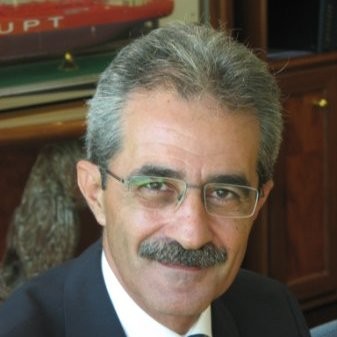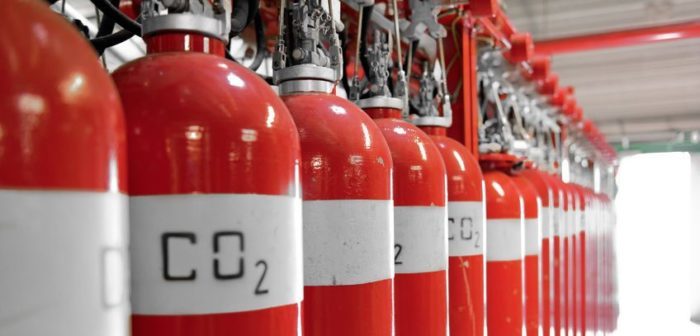This time, our special column, in association with The North of England P&I Club, sheds focus on the IMDG Code asking industry experts whether its implementation has been effective in preventing container fire incidents so far. In this regard, we asked global experts to share their views on the following question:
Is the IMDG Code effective in preventing container fire incidents?
 John Southam John SouthamLoss Prevention Executive The North of England P&I Club |
 Aslak Ross Aslak RossFirst Chairman of the Management Board of the Container Ship Safety Forum e.V. (Head of Marine Standards, Maersk Line A/S) |
|
| No. However, the problem is not primarily with the code itself but rather with its implementation and enforcement ashore. The IMDG Code relies on both the honesty and competence of the shipper. The huge number of boxes being shipped around the world means that it is difficult for the authorities to enforce the requirements of the code with regard to packing and correct content declaration of the containers. One issue that shippers have to deal with is the complexity of the special provisions. Less sophisticated shippers can often mispack or misidentify cargoes due to the number of special provisions that may apply.
Another issue are the rules concerning stowage of hazardous cargo. Large container vessels can have many different dangerous cargoes stowed very close to each other and close to sensitive areas for the ship like the accommodation. Recent experience of container ship fires has demonstrated that current IMDG rules may need to be modified to protect more sensitive areas and de-risk IMDG stowage. Misdeclaration of IMDG cargo is a very serious issue. While not directly an IMDG code issue it is an enforcement issue and one which we believe the authorities should act strongly to reduce the incidence of this dangerous practice. The industry is very aware of these issues and work is ongoing at CINS and by the major container lines focussed on improving the safe carriage of IMDG cargoes |
No. The backbone of the IMDG code is that Shipper declares Dangerous Goods (DG) correctly. This is not consistently happening today. For the IMDG code to prevent container fires, all ambiguity should be removed from it. The use of IMDG Special Provisions provided an opportunity to ship DG in practice without declaring same. A review of Special Provisions offered in the IMDG code is required in order to restore safety. The control measures in place to support the efficiency of the IMDG code are not adequate; IMO Circular 1442 outlines the requirements for inspection of DG Containers. Less than a tenth of the nations under UN report as required. The supporting measures in the industry need to be promoted: E.g. the CTU code’s checklist for staff handling or stuffing DG or the training requirements for staff involved at any level with DG.
|
|
 Christis Angelides Christis AngelidesGroup Director, QSHE & Compliance COLUMBIA SHIPMANAGEMENT LTD |
 Uffe Ernst-Frederiksen Chairman, CINS |
|
| No.Shipping dangerous goods is a tricky business. No doubt, the code has contributed positively, when firstly introduced, and helped a lot over the years to categorize dangerous goods properly and learn how to handle them. It is a useful tool, comprehensive and very demanding. The problem however is that in a number of places it is not taken seriously into consideration. Many containers are delivered onboard with misdeclared or undeclared dangerous goods. With the increased container capacity of modern vessels, the probability to get onboard a container with such misdeclared dangerous goods is very high. As a result, more and more container ships are suffering from fires attributed to self-igniting cargo, which was obviously not declared correctly. There is nothing wrong with the IMDG code. The problem is with the inability of all stakeholders to enforce it effectively.
|
No, the IMDG code is not effective in preventing fires. The shipper or booking party of the commodity, is with the use of IMDG Special Provision’s provided an opportunity to ship Dangerous Goods in practice without declaring same. The backbone of the IMDG code is that Shipper declares Dangerous Goods correctly. In order for the IMDG code to actively prevent container fires, all ambiguity should be removed from the IMDG code. The IMDG code follows a two-year cycle, where there is one mandatory year and one voluntary year. This provides the Shipper an opportunity to declare according to outdated code or according to new code, thereby further creating ambiguity in connection with declaration or – as the Special Provisions open opportunity for – not declaring correctly. The control measures in place to support the efficiency of the IMDG code are not adequate, IMO Circular 1442 outlines the requirements for inspection of Dangerous Goods Containers. Less than a tenth of the nations under UN report as required. Thus the efficiency in practice, combined with the publicly available media information regarding container fires, suggests that the IMDG Code does not actively prevent container fires presently. A review of the Special Provisions that the IMDG code offer, is required in order to restore safety for crew, environment, cargo and assets. In order for the IMDG code to be effective, additional to considering review of the Special Provisions under the IMDG Code, the supporting measures in the industry need to be promoted, with eye toward general use across the container industry, i.e. the CTU codes checklist for staff handling or stuffing Dangerous Goods or staff involved at any level with Dangerous Goods and thereby the function specific requirements for Dangerous Goods training according the IMDG code, need to be re-launched in the industry. This places an onus on the Dangerous Goods expert community that should necessitate re-education of Dangerous Goods shippers |

































































